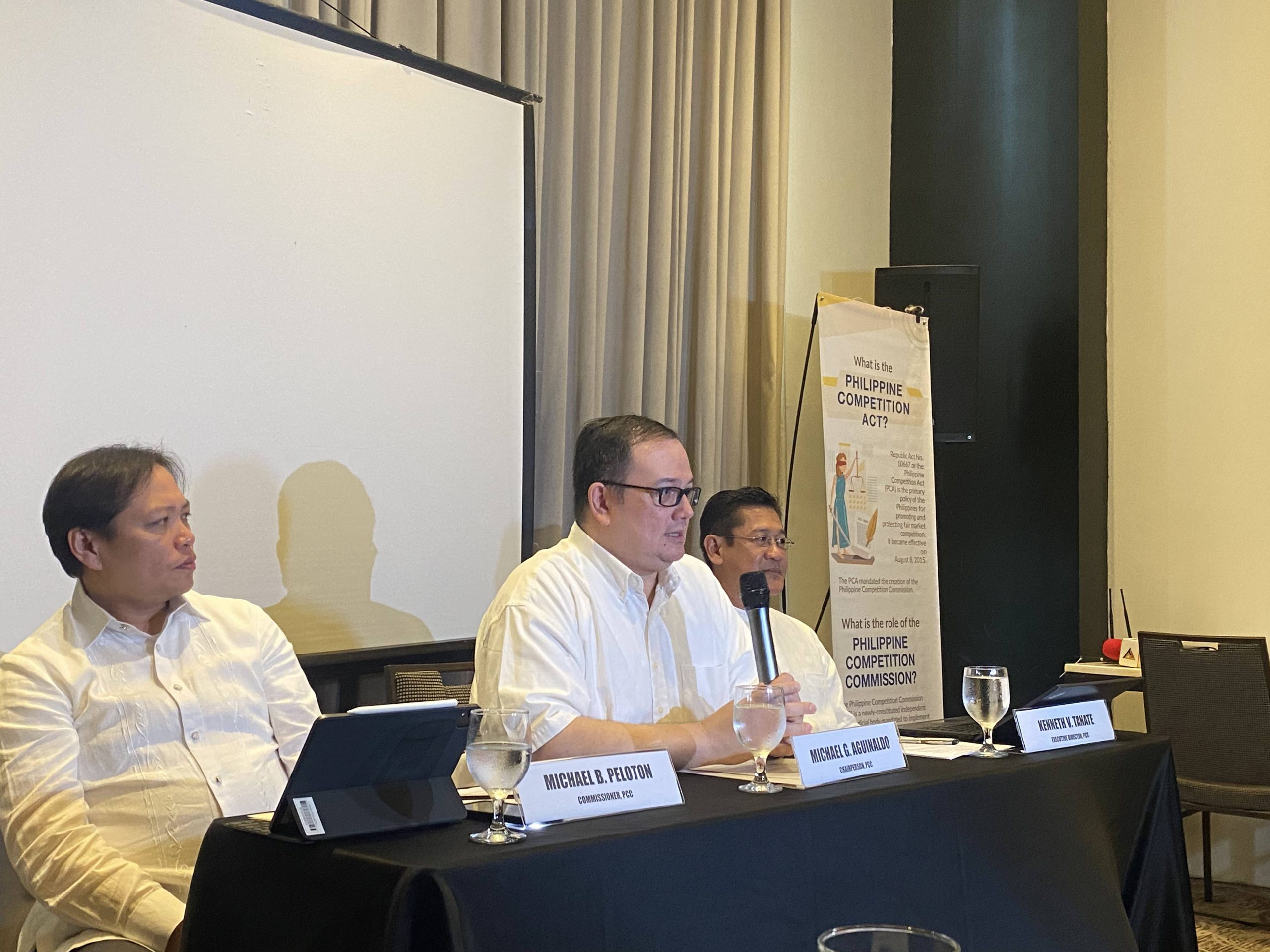THE PHILIPPINE Competition Commission (PCC) clarified that the ongoing complaint it is pursuing against a rice miller is not in Mindanao.
PCC chairperson Michael Aguinaldo said during a press conference last Sept. 20 that the case being investigated by the PCC Competition Enforcement Office is in Luzon.
“We don’t normally discuss the details of the ongoing case, but I can assure you it’s not in Mindanao,” Aguinaldo said.
According to Aguinaldo, the case is about a dominant rice miller who allegedly forced farmers to sell at really low prices, which is against the Philippine Competition Act (PCA).
Meanwhile, PCC executive director Kenneth Tanate mentioned the two ongoing cases in Mindanao, one is from the water industry and the other is from the beverage industry. But he clarified that these cases are not from Davao either and the PCC hasn’t rendered its decision yet.
Aguinaldo divulged that one engaged in an anti-competitive agreement by price fixing and the other was involved in tying and bundling, which happens when a distributor forces a seller to sell a product they do not want as a condition for taking products they prefer.
“To clarify, when we say ongoing case, there is already a complaint filed against the business and it’s already undergoing processing and it’s going to be deliberated upon by the Commission within a certain period of time. But then we have what are known as investigations. These could be based on the complaint. But then it is not clear yet if there was a violation of Competition Law in the eyes of our enforcement office,” Aguinaldo said.
When asked about the reason why businesses commit such acts, Aguinaldo responded, “Of course to control the market, to get more revenue. The other one, [the one who engaged in anti-competitive] agreement, to prevent competition in terms of pricing.”
Aguinaldo also said all prime commodities are included in their mandate. “If information is provided that is verifiable, then that is something we would look into as well,” he said, “if they see [that] there is a reason to suspect that there is some anti-competitive behavior ongoing, then they will recommend an investigation into it.”
The Philippine Competition Commission recently opened its third investigation station (i-Station) in Davao City to bring its services closer to stakeholders in the southernmost part of the country.
Their mandate is provided under RA No. 10667 or the Philippine Competition Act which provides for a national competition policy prohibiting anti-competitive agreements, abuse of dominant position, and anti-competitive mergers and acquisitions.
“In terms of cases, we have the competition enforcement office who [is] authorized to investigate and file cases against any business engaged in anti-competitive behavior. It could be anti-competitive agreements, price fixing, [and] cartels could fall under that. It could be an abuse of a dominant position, or it could be a merger acquisition that might result in a monopoly. So they can file cases based on that,” Aguinaldo said.

